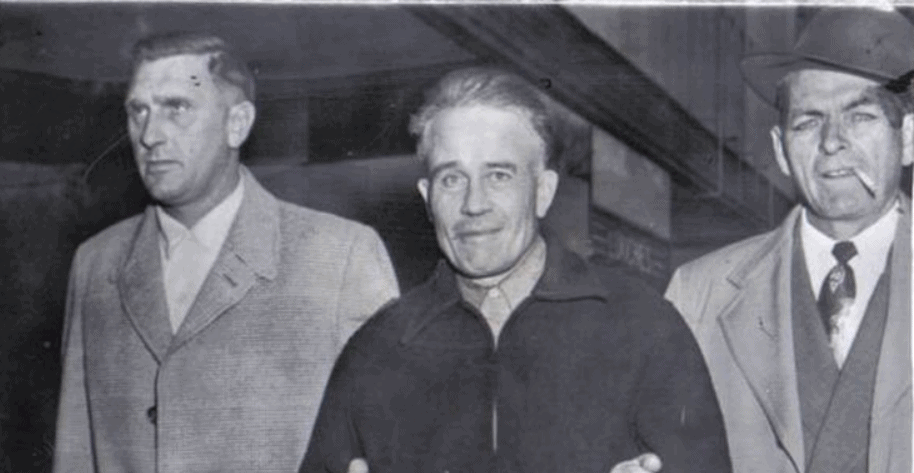Ed Gein, also known as the butcher of Plainfield, is by far America’s most notorious killer and body snatcher.
Born on August 27, 1906, in La Crosse, Wisconsin, Ed had a harrowing upbringing in a household that can only be described as atrocious. His father George Philip Gein was a jobless alcoholic, and his oppressive and abusive mother, Augusta Wilhelmine, was an antisocial tyrant. Ed also had a brother, Henry Gein, who died in mysterious circumstances (some speculation Ed was behind it, but nothing was confirmed). Augusta played a major role in shaping Ed’s deranged personality: he absorbed her frantic and hyper-religious ideas such as women being immoral and having any interactions with them (except herself) meant being on par with Satan himself. These convictions were further enhanced when the family decided to move out of the city and live in total isolation on a farm. Augusta even tried to keep outsiders away from her family to keep full control over her sons’ behaviors and made sure they stayed on « the right path ». But despite the tyrannical nature of his mother, Ed was actually obsessed with her and loved her more than anything.
At school, Gein was secluded, rarely socialized with his peers, and was a victim of constant bullying. His teachers stated that the young child had abnormal mannerism, like random bursts of laughter at seemingly nothing. Later on, his mother dropped him out of school at 13 to help her on the farm.
On April 1, 1940, Ed’s father passed away and Ed had to take odd jobs in town in order to support the family and devoted himself to take care of his mother. Most people stated that he was a decent and reliable guy, that some people even hired him to babysit their children. December 29, 1945, was a turning point for Ed as his mother died at 67 after two strokes and struggles with illness. The woman who Gein idolized, his only friend, was no longer there, and he was left alone and devastated. This is when things took a turn for the worse. He locked her room to make sure her stuff was in the exact same place as his mother left them. Slowly, the idea of trying to « become his mother » haunted his mind.
In 1957, Bernice Worden, who allegedly looked like Augusta, a local shopkeeper, went missing and Gein, being the last person seen roaming around her shop, was immediately the primary suspect. Ed was arrested, and a warrant was issued to investigate his house, later called the « House of Terror ».
Police found Bernice’s dead body was found in the barn, hanging upside down like an animal headless and completely gutted. The sight of this grizzly murder was sickening, but as they went to investigate the house, they happened upon a dreadful scene that shocked them for life. Severed heads were kept in plastic bags as well as human skulls and other body parts he used as decoration in the house. More stomach-churning. The furniture in the house was all covered in human skin: lamps, chair covers, baskets … In his bedroom, Gein kept a corset made of human skin and masks made from carefully cut off human faces. He, later on, confessed he likes to wear the atrocities he made to « become his mother ».
Gein confessed to killing two women: Mary Hogan in 1954 and Bernice Worden in 1957, and digging up about 9 graves to make his wicked work, but people speculate he killed way more than just two women.
Unsurprisingly, Gein was found not fit for trial by reason of obvious insanity and instability. He was diagnosed with schizophrenia and sent to Mendota Mental Health Institute, where he spent the rest of his life. He succumbed to cancer and died in 1984 and was buried in Plainfield next to his mother and father. His twisted deeds were the inspiration behind the classic Hitchcock movie « Psycho », as well as « The Texas Chainsaw Massacre » and Buffalo Bill from the movie « Silence of the Lamb ».




Share your thoughts